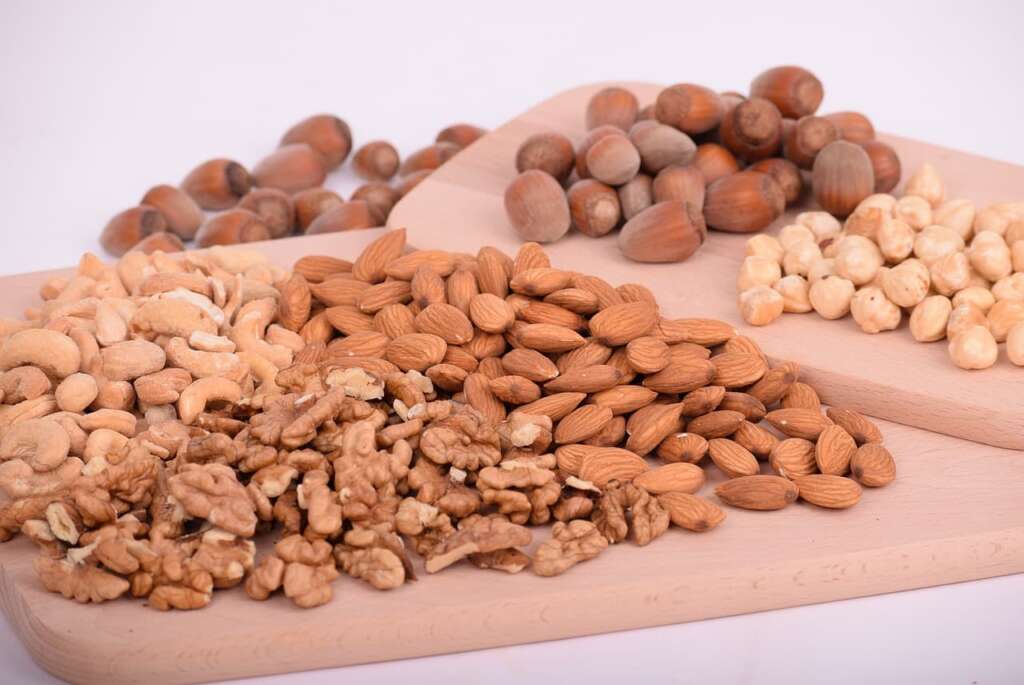If you’re asking about the benefits of being vegan for a month, then you’re probably getting ready for an event, or genuinely want to give it a shot to see how you feel. While these are motivating reasons, they are only two of a long list of reasons to go vegan for 30 days. While you may not experience the full benefits of switching to a plant-based diet, you can definitely benefit from the healthy lifestyle you lead in the 4 weeks or so you commit to veganism.
One question to ask yourself is once you hit your 4-week mark, why stop there?
Definition of Veganism
Veganism is a lifestyle that involves avoiding the consumption of animal products, including meat, dairy, eggs, and honey. For many, the decision to try a vegan lifestyle is motivated by concerns about animal welfare, environmental sustainability, or personal health. Trying a vegan lifestyle for a month can be an excellent way to explore the benefits of this lifestyle and see if it is a good fit for one’s values and goals. Some of the reasons to try a vegan lifestyle include:
- Reducing one’s environmental footprint
- Supporting animal welfare
- Improving personal health

Reasons to Try a Vegan Lifestyle
A vegan diet has been linked to numerous health benefits, including improved heart health, lower blood sugar levels, and reduced joint pain. A vegan diet is typically high in fibre, vitamins, and minerals, and low in saturated fat, which can contribute to these health benefits. Additionally, a vegan diet may offer protection against certain cancers and improve cholesterol levels. While it may take longer than a month to experience the full range of health benefits associated with a vegan diet, trying a vegan lifestyle for a month can provide a good introduction to the potential benefits.
Trying a vegan lifestyle for a month can also provide an opportunity for increased creativity in the kitchen and exploration of new flavours and ingredients. While some may worry about feeling socially isolated or experiencing meat cravings, many people find that a vegan lifestyle can be both satisfying and socially fulfilling. It is important to note that a vegan diet may require careful planning to ensure adequate intake of essential nutrients, such as vitamin B12. However, with proper planning and supplementation, a vegan lifestyle can be a healthy and rewarding choice for those who choose to pursue it.
Improved Digestion and Gut Health

Reduced Inflammation in the Gut
One of the significant benefits of following a vegan diet for a month is improved digestion and gut health. Vegan diets tend to be high in fibre, which is essential for maintaining healthy digestion and regular bowel movements. Plant-based foods such as fruits, vegetables, whole grains, and legumes are rich in fibre, which helps to keep the digestive system functioning efficiently. Additionally, a vegan diet is low in saturated fats and animal proteins, which have been linked to inflammation in the gut. By consuming a diet rich in plant-based foods, individuals can reduce inflammation and improve gut health.
Improved Gut Microbiome Diversity
Vegan diets have been shown to promote a more diverse and stable gut microbiome. The gut microbiome is the collection of microorganisms that live in the digestive tract and play a crucial role in digestion, immune function, and overall health. Studies have shown that following a plant-based diet can lead to a greater abundance of beneficial gut bacteria, including Prevotella, Clostridium, Lactobacillus, and Ruminococcus. This increased diversity of gut microbiota can lead to improved digestion, reduced inflammation, and better overall health.
High Fiber Content in a Vegan Diet
Plant-based diets, including vegan diets, have been associated with a lower risk of chronic diseases such as heart disease, diabetes, and cancer. The high fibre content of a vegan diet can help to lower cholesterol levels and reduce the risk of heart disease. Additionally, a vegan diet can improve insulin sensitivity and reduce the risk of developing type 2 diabetes. These benefits may be attributed, in part, to the positive effects of a vegan diet on gut health. By adopting a vegan diet for a month, individuals can experience the numerous benefits of plant-based eating, including improved digestion and gut health, reduced inflammation, and a lower risk of chronic diseases.

Increased Energy Levels and Improved Mood
One of the benefits of being vegan for a month is reduced fatigue and better sleep. A whole food plant-based diet is rich in vitamins and minerals, including calcium, potassium, magnesium, and vitamin B, which have been linked to improving sleep quality. Additionally, a vegan diet that emphasizes unprocessed foods may reduce depression, stress, anxiety, and the intensity of headaches. In turn, this can lead to better sleep quality and increased energy levels throughout the day.
Increased Physical and Mental Energy
Another benefit of being vegan for a month is increased physical and mental energy. A vegan diet appears to lower blood sugar levels and improve kidney function, which can lead to increased energy levels. Furthermore, a plant-based diet provides higher levels of fruits and vegetables, which have been linked to improved physical and mental health. Vegans also often have better socioeconomic levels, live a healthier lifestyle with more physical exercise, and tend to smoke less, all of which can contribute to increased energy levels.
Reduced Stress and Anxiety
A vegan diet can also reduce stress and anxiety, leading to an improved mood. Some studies have found that plant-based diets are associated with reduced depression and anxiety. Anecdotally, some people report improved mood and less anxiety when eating a vegan diet, although others report worsened symptoms. Additionally, a vegan diet may help to lower stress levels, which can lead to a decrease in anxiety and an overall improved sense of well-being. By reducing stress and anxiety, a vegan diet can contribute to a better quality of life and an increased sense of happiness.
Enhanced Weight Loss and Reduced Risk of Chronic Diseases

Reduced Caloric Intake
Switching to a vegan diet for a month can lead to enhanced weight loss and reduced caloric intake. Vegan diets are typically lower in fat and higher in fibre, which can help individuals feel fuller for longer periods, leading to a reduction in overall calorie intake. This reduction in calorie intake, along with the elimination of animal products, can lead to weight loss and improved body composition. Additionally, a plant-based diet can provide increased nutrient intake, including vitamins, minerals, and antioxidants. This can further contribute to overall health and well-being.
Lowered Risk of Obesity, Diabetes, and Heart Disease
Following a vegan diet for a month can also lower the risk of chronic diseases such as obesity, diabetes, and heart disease. Plant-based diets are associated with decreased all-cause mortality and a lower risk of these chronic diseases. Vegan diets tend to be lower in saturated fats and cholesterol, which can contribute to a lower risk of heart disease. Additionally, plant-based diets are high in fibre and complex carbohydrates, which can help regulate blood sugar levels and reduce the risk of developing type 2 diabetes. By reducing the risk of these chronic diseases, individuals can experience improved overall health and a higher quality of life.
Increased Nutrient Intake
A vegan diet for a month can also lead to increased nutrient intake and improved bowel health. Plant-based diets are high in fibre, which can promote healthy bowel movements and reduce the risk of constipation and other digestive issues. Additionally, a well-planned vegan diet can provide adequate protein, iron, calcium, and other essential nutrients. By consuming a variety of plant-based foods, individuals can ensure that they are meeting their nutritional needs while also promoting better digestive health. Moreover, a vegan diet can lead to improved skin health, including increased hydration and brightness and decreased scaliness and wrinkles. Overall, a vegan diet for a month can lead to numerous health benefits, including enhanced weight loss, reduced risk of chronic diseases, increased nutrient intake, and improved bowel health. By incorporating a variety of plant-based foods into their diet, individuals can experience these benefits and promote better overall health and well-being.
Improved Skin Health and Reduced Inflammation

Increased Antioxidant Intake
One of the significant benefits of adopting a vegan diet for a month is an increased intake of antioxidants. Antioxidants are essential for maintaining healthy skin as they help to protect against oxidative stress and damage caused by free radicals. Vegan diets are rich in antioxidant nutrients such as vitamin C, vitamin E, β-carotene, potassium, and magnesium. Several studies have shown that plant-based dietary patterns provide a higher intake of antioxidants compared to diets rich in meat. A new study also suggests that vegans may live longer due to higher levels of antioxidants from eating fruits and vegetables. By consuming a vegan diet, individuals can significantly increase their antioxidant intake, leading to improved skin health.
Reduced Inflammation and Acne
Another benefit of being vegan for a month is reduced inflammation and acne. Acne is linked to inflammation in the body, and vegan diets have been shown to reduce inflammation levels. This reduction in inflammation can lead to a decrease in acne and blemishes on the skin. Vegan diets are also rich in beta-carotene, which is linked to reduced inflammation. According to experts, a vegan diet is antioxidant-rich, and loaded with vegetables and fruits that can combat acne formation and reduce acne. By eliminating animal products and consuming a plant-based diet, individuals can improve their skin’s appearance and reduce inflammation-related skin concerns.
Improved Skin Elasticity and Appearance
Lastly, a vegan diet can improve skin elasticity and appearance. Plant-based diets are rich in bioactive compounds, such as vitamin C, vitamin E, beta-carotene, polyphenols, and phenolic acids, which can contribute to healthy skin. These compounds help to reduce oxidative stress and protect against UV radiation, which can lead to premature aging and wrinkles. A plant-based diet has also been associated with healthier skin due to its ability to enrich and modulate the microbiome through various mechanisms. By consuming a vegan diet, individuals can improve their skin’s elasticity and appearance, leading to a more youthful and radiant complexion.
Environmental Benefits of a Vegan Lifestyle

Reduced Carbon Footprint
One of the most significant environmental benefits of adopting a vegan lifestyle is the reduction in an individual’s carbon footprint. According to a study conducted by the University of Oxford, going vegan could reduce an individual’s carbon footprint from food by up to 73%. This is because plant-based diets require significantly less energy-intensive resources, such as fossil fuels, to produce compared to animal-based diets. Additionally, a vegan diet has been found to have the lowest carbon footprint at just 1.5 tons CO2e, which is significantly lower than the average American’s carbon footprint. By reducing the carbon footprint associated with food consumption, individuals can contribute to mitigating the effects of climate change and promoting a more sustainable future.
Reduced Water Usage
In addition to reducing carbon emissions, a vegan lifestyle can also help reduce water usage. According to UCLA Sustainability, a plant-based diet can reduce an individual’s water footprint by up to 55% compared to a diet that includes meat and dairy. Animal agriculture is a notoriously water-intensive industry, with approximately 1,800 to 2,500 gallons of water required to produce just one pound of beef. By reducing our consumption of animal products, we can significantly decrease the amount of water used in food production.
Reduced Land Use and Deforestation
Finally, adopting a vegan lifestyle can also help reduce land use and deforestation. Animal agriculture is the largest land-use system on Earth and a top driver of deforestation. In contrast, plant-based diets require far less land for food production and have been found to use 75% less land, one-fifth of the water, and have a much lower energy consumption than a meat-based diet.
Even just going vegan for one month can have significant benefits, as a global vegan diet could reduce agricultural land use by 75%. By reducing our consumption of animal products and promoting plant-based diets, we can help conserve land and prevent further deforestation, ultimately contributing to a more sustainable future for our planet.
Conclusion and LongTerm Benefits of a Vegan Lifestyle

Improved Overall Health and Well-Being
One of the most significant benefits of adopting a vegan lifestyle is the potential for improved overall health and well-being. Studies have shown that a plant-based diet can lead to reduced body weight, improved heart and vascular health, improved blood sugar control, reduced joint pain, and improved bowel health.
Additionally, a vegan diet can lower blood sugar levels and improve kidney function, making it a beneficial dietary choice for those with type 2 diabetes or other related health conditions. These health benefits can have a significant impact on an individual’s quality of life, and may even lead to a longer lifespan.
Reduced Animal Cruelty and Environmental Impact
In addition to the personal health benefits, adopting a vegan lifestyle can also have a positive impact on reducing animal cruelty and environmental impact. By choosing to forego animal products, individuals can reduce the demand for them, which in turn reduces the number of animals bred for consumption.
This demand reduction can also lead to a decrease in the environmental impact of animal agriculture, which is a significant contributor to greenhouse gas emissions and deforestation. By choosing a vegan lifestyle, individuals can make a meaningful contribution to the well-being of animals and the planet.
Long-Term Sustainability and Future Outlook
Finally, adopting a vegan lifestyle can also contribute to long-term sustainability and a positive future outlook. As the world’s population continues to grow, the demand for food and resources will continue to increase. By choosing a plant-based diet, individuals can help reduce the strain on the planet’s resources and promote a more sustainable future.
Additionally, a vegan lifestyle can be more cost-effective, as plant-based foods tend to be less expensive than animal products. By making small changes to our daily habits, we can all make a positive impact on our health, the environment, and the world around us.

